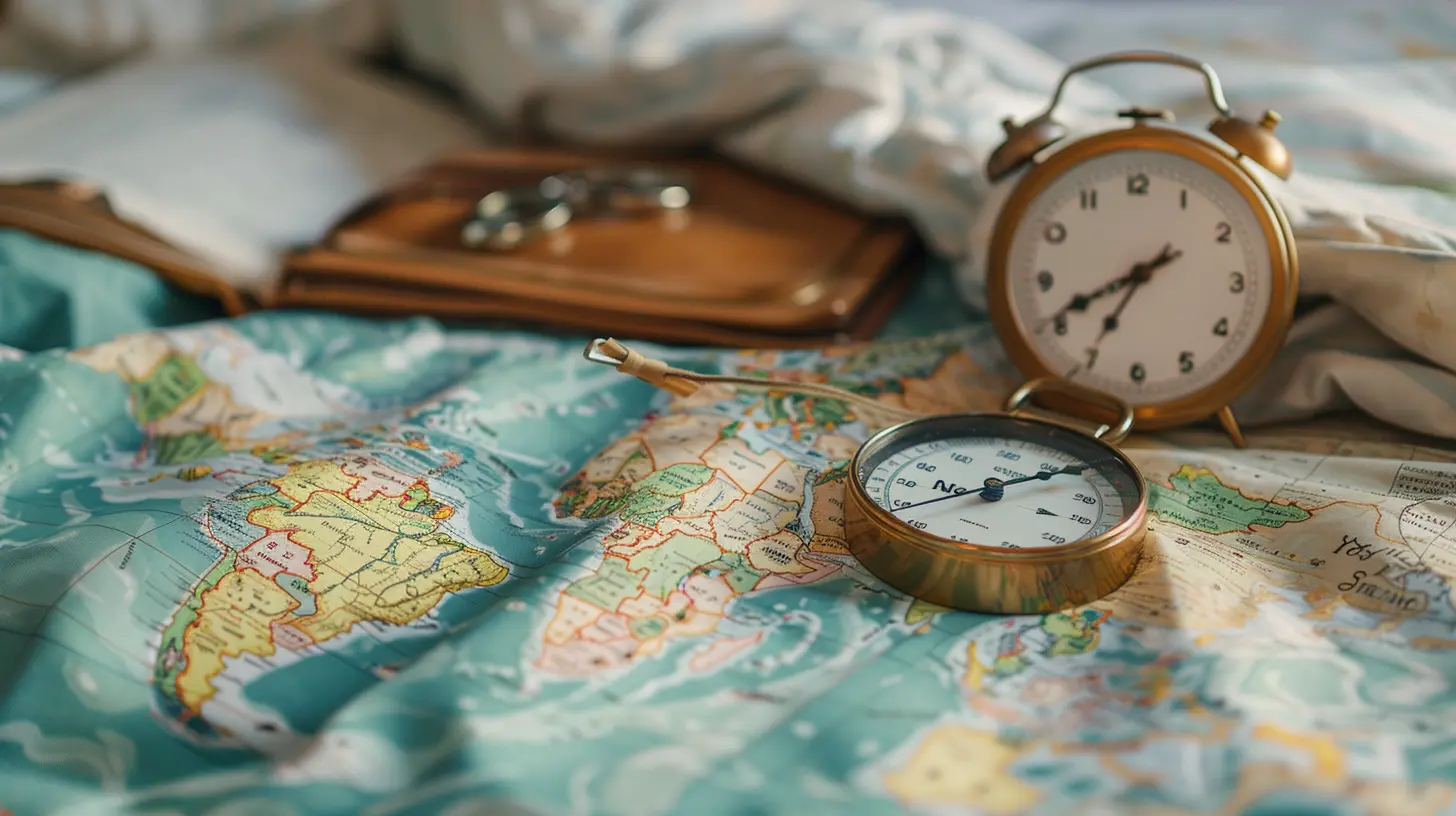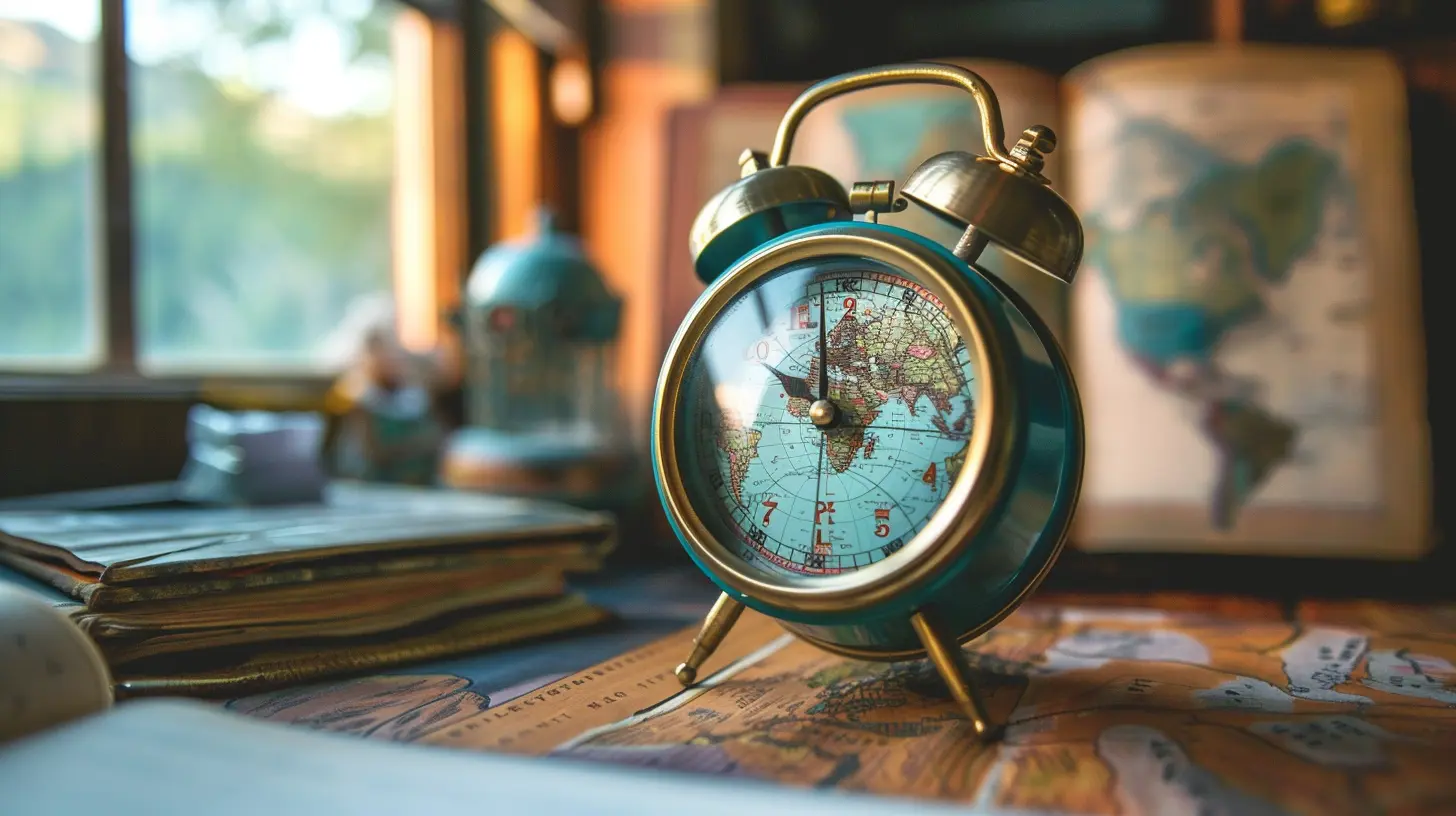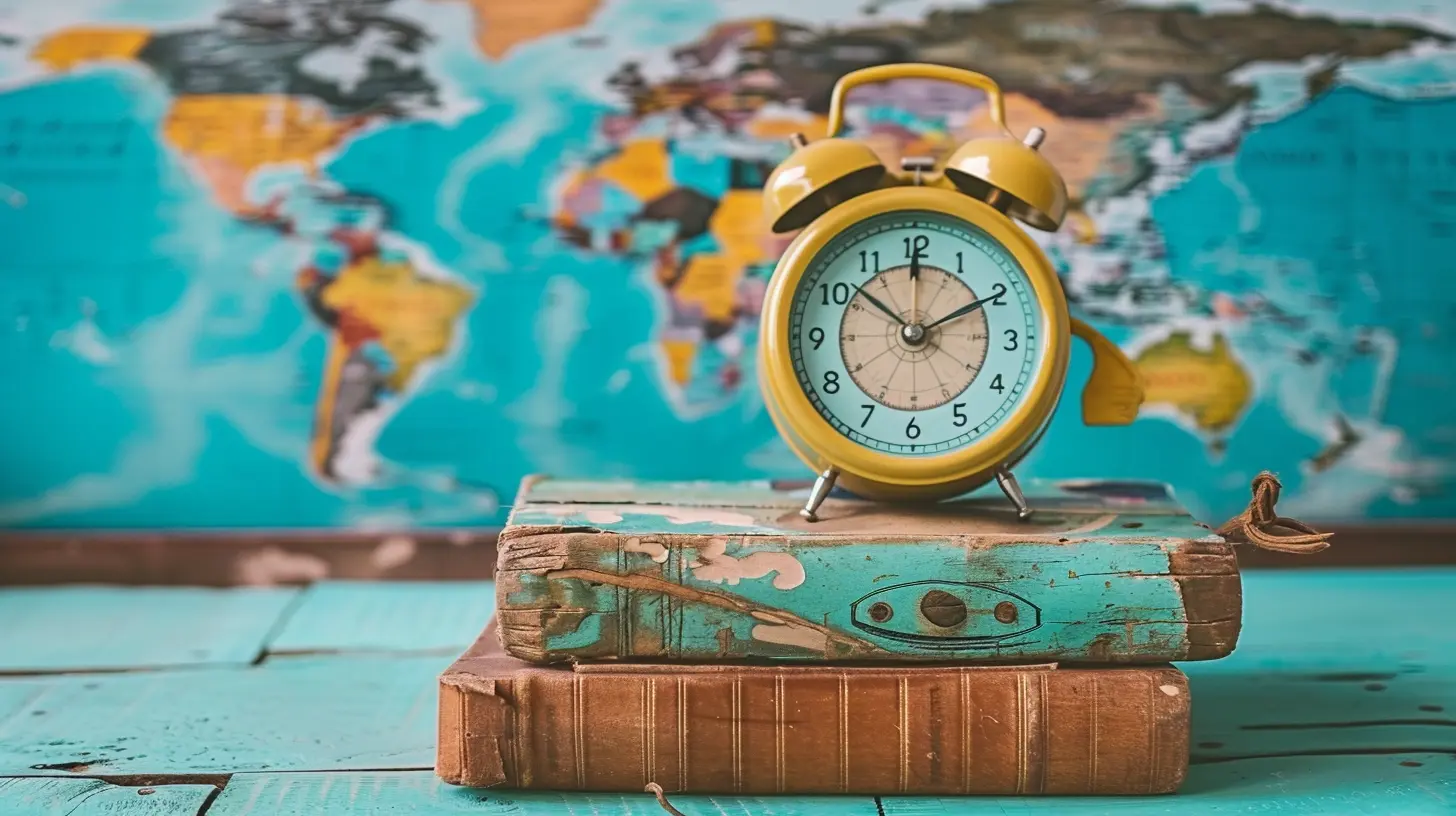How to Sleep Better in a New Time Zone
29 May 2025
Traveling to a new time zone can be exciting, but it often comes with an unwelcome companion—jet lag. You arrive at your dream destination, ready to soak in the sights, but your body is stuck in another time zone. Instead of enjoying sunrises and local cuisine, you’re wide awake at 3 a.m. or nodding off in the middle of the day. Sound familiar?
Getting quality sleep in a new time zone doesn’t have to be a struggle. With some practical strategies, you can reset your internal clock and wake up feeling refreshed. Let's dive into how you can beat jet lag and sleep better when traveling across time zones. 
Why Does Traveling Mess With Your Sleep?
Before we talk about solutions, let’s break down why your body struggles with sleep when you travel.Your body runs on something called the circadian rhythm, which is your internal clock. It tells you when to wake up, eat, and fall asleep. This rhythm is heavily influenced by natural light and daily habits.
When you travel across time zones, your internal clock gets confused. Your body still thinks it’s in your home time zone, so it produces sleep hormones at the wrong times. This mismatch leads to jet lag—the groggy, disoriented feeling that makes it hard to sleep when you need to. 
Practical Ways to Sleep Better in a New Time Zone
Now that we know why sleep gets messed up, let’s dive into how to fix it.1. Adjust Your Schedule Before You Travel
One of the best ways to minimize jet lag is to gradually shift your sleep schedule before your trip. A few days before you leave, adjust your bedtime by 30-60 minutes each night to get closer to your destination’s time zone.If you’re flying east, start going to bed earlier. If you’re heading west, stay up later. This small adjustment can help your body transition smoothly.
2. Get Plenty of Natural Light
Light is the ultimate reset button for your internal clock. Exposure to daylight helps your body adjust to the new time zone faster.- If you arrive in the morning or early afternoon, spend time outside in the sunlight. This signals your body to stay awake.
- If you land at night, avoid bright screens and artificial light before bed.
Sunlight is like nature’s caffeine—it wakes you up and tells your body, "Hey, it’s daytime now!"
3. Stay Hydrated but Watch the Caffeine
Flying dehydrates you, and dehydration makes jet lag worse. Drink plenty of water before, during, and after your flight.But here’s the trick—limit caffeine and alcohol, especially in the hours leading up to bedtime. Caffeine can stay in your system for hours, making it harder to fall asleep when you need to.
So, if you're craving that double espresso at 5 p.m., think twice!
4. Take Short Naps Strategically
There’s nothing wrong with a good nap, but timing is everything. If you’re feeling drained, a short nap (20–30 minutes) can give you a boost. Just don’t nap too long or too late in the afternoon, or you might struggle to sleep at night.If you must nap, do it before 3 p.m. local time to avoid disrupting your nighttime rest.
5. Use Melatonin Wisely
Melatonin is a hormone that helps regulate sleep. Your body produces it naturally when it gets dark, signaling bedtime.If your schedule is way off, a small dose of melatonin can help reset your internal clock. It’s not a sleeping pill, but rather a nudge to tell your body, "Hey, it's nighttime now."
The key is to take melatonin at the right time—about an hour before bedtime in your new time zone.
6. Create a Sleep-Friendly Environment
Your hotel room or Airbnb might not feel like home, but you can tweak it to make it more sleep-friendly. Here’s how:- Block out light – Use blackout curtains or wear an eye mask to signal to your brain that it's time to sleep.
- Limit noise – If you're in a noisy area, earplugs or a white noise app can help drown out disturbances.
- Adjust room temperature – A cool room (around 65°F or 18°C) helps you fall asleep faster.
- Stick to a bedtime routine – Whether it’s reading a book, listening to calm music, or stretching, a familiar routine tells your body it’s time to wind down.
7. Move Your Body
Exercise is a great way to shake off jet lag and feel energized. A brisk walk, some light stretching, or a quick workout can help your body adjust to the new schedule.Just avoid intense workouts too close to bedtime, as they might make you feel too wired to sleep.
8. Avoid Midnight Phone Scrolling
We’ve all done it—lying in bed, mindlessly scrolling through social media. But bright screens can trick your body into thinking it’s still daytime.Blue light from phones and tablets delays melatonin production, making it harder to fall asleep. Try switching to a book or listening to a podcast instead.
If you must use your phone, turn on "night mode" to reduce blue light exposure.
9. Eat Smart Before Bed
What you eat can affect your sleep. Heavy meals, spicy foods, or too much sugar close to bedtime can keep you awake.Instead, opt for a light snack with sleep-friendly nutrients like magnesium and tryptophan. Some good choices include:
- Bananas
- Nuts (almonds, walnuts)
- Yogurt
- Herbal tea (like chamomile or valerian root) 
How Long Does It Take to Adjust?
The time it takes to adjust to a new time zone depends on how many hours you’ve shifted. A common rule of thumb is:- It takes about a day per time zone crossed for your body to fully adapt.
- Flying east is harder than flying west because you’re losing hours.
- Short trips (less than 3 days) might not require full adjustment—just manage your sleep to function well during the trip. 
Final Thoughts
Sleeping well in a new time zone doesn’t have to be a nightmare. With a little preparation and smart habits, you can outsmart jet lag and maximize your trip.So, next time you cross time zones, remember: light is your best friend, hydration is key, and a little melatonin might just do the trick. Sweet dreams and happy travels!
all images in this post were generated using AI tools
Category:
Travel HealthAuthor:

Taylor McDowell
Discussion
rate this article
4 comments
Ardyn Frank
Great tips! Adjusting to a new time zone can be tricky, but your advice makes it so much easier. Can't wait to travel again!
June 22, 2025 at 4:52 AM

Taylor McDowell
Thank you! I’m glad you found the tips helpful. Safe travels!
Graham Rodriguez
Unlock the secrets of slumber; your dreams await in unfamiliar skies.
June 3, 2025 at 2:57 AM

Taylor McDowell
Thank you for the poetic encouragement! Embracing new experiences can certainly enhance our rest.
Elowen McWhorter
This article offers practical tips for overcoming jet lag, but it could delve deeper into the psychological aspects of sleep disruption in travel. Emphasizing mindfulness practices and the importance of adapting routines could enhance the overall experience for travelers.
May 31, 2025 at 3:50 PM

Taylor McDowell
Thank you for your insightful feedback! I appreciate your suggestion to explore the psychological aspects and mindfulness practices further. I'll consider incorporating these elements in future updates.
Molly Webster
This article offers practical tips for overcoming jet lag and adjusting to new time zones. A helpful read for travelers seeking restful nights abroad.
May 30, 2025 at 3:30 PM

Taylor McDowell
Thank you! I'm glad you found the tips helpful for your travels. Safe journeys!



